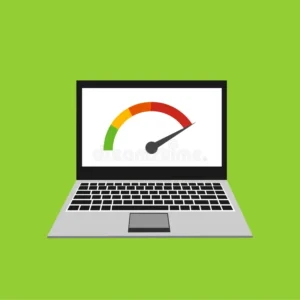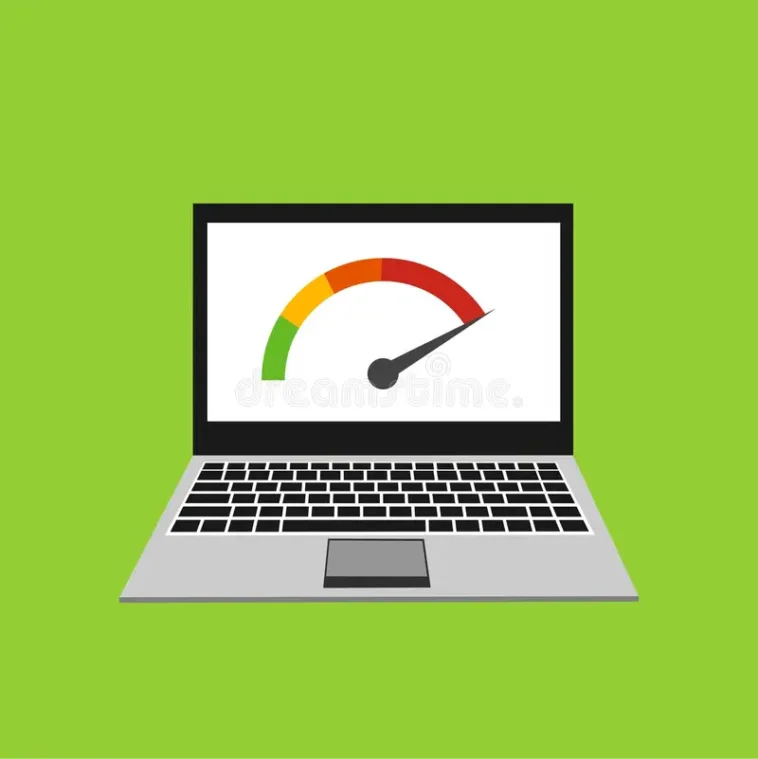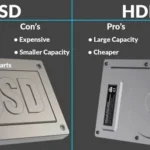How to Make Your Computer Fast, Reinstall Your Operating System

How to Make Your Computer Fast: 7 Simple Steps to Boost Performance
If your computer has become sluggish and unresponsive, it’s time to take action to restore its speed and efficiency. Here are seven simple steps to help you boost your computer’s performance:
1. How to Make Your Computer Fast, Clean Up Your Hard Drive
Over time, your hard drive can accumulate unnecessary files and programs that slow down your computer. Regularly delete unused files, empty the Recycle Bin, and uninstall programs you no longer need.
2. How to Make Your Computer Fast. Defragment Your Hard Drive
Defragmentation reorganizes the data on your hard drive, making it easier for your computer to access files. This can significantly improve performance, especially on older computers.
3. Add More RAM
RAM (Random Access Memory) is essential for storing data that your computer is currently using. Adding more RAM can reduce the amount of time your computer spends accessing the hard drive, resulting in faster performance.
4. Upgrade Your Processor
The processor is the brain of your computer, responsible for executing instructions and processing data. Upgrading to a faster processor can dramatically improve overall performance, especially for demanding tasks like video editing or gaming.
5. Install a Solid State Drive (SSD)
SSDs are much faster than traditional hard drives because they use flash memory instead of spinning disks. Replacing your hard drive with an SSD can significantly reduce boot times, application loading speeds, and overall responsiveness.
6. Reinstall Your Operating System
A fresh installation of your operating system can remove accumulated clutter and restore your computer to its original performance. However, be sure to back up your important data before proceeding.
7. Keep Your Software Up to Date
Software updates often include performance improvements and bug fixes. Regularly updating your operating system, drivers, and applications can help keep your computer running smoothly.
By following these steps, you can significantly improve the performance of your computer and restore its speed and efficiency. Remember to regularly maintain your computer to prevent future slowdowns and keep it running at its best.
How to Make Your Computer Fast, Defragment Your Hard Drive
How to Make Your Computer Fast: 7 Simple Steps to Boost Performance
In today’s fast-paced digital world, a sluggish computer can be a major hindrance. Fortunately, there are several simple steps you can take to significantly improve your computer’s performance.
1. Defragment Your Hard Drive
Over time, files on your hard drive become fragmented, which can slow down your computer’s access to them. Defragmenting your hard drive reorganizes these files, making it easier for your computer to find and retrieve them. To defragment your hard drive, follow these steps:
* Open the “My Computer” or “This PC” window.
* Right-click on the hard drive you want to defragment.
* Select “Properties” from the menu.
* Click on the “Tools” tab.
* Under “Optimize and defragment drive,” click on the “Optimize” button.
2. Clean Up Your Registry
The registry is a database that stores settings and information for your operating system and installed programs. Over time, the registry can become cluttered with unnecessary entries, which can slow down your computer. Cleaning up your registry can help improve performance and stability.
3. Uninstall Unnecessary Programs
Unused programs can take up valuable space on your hard drive and slow down your computer. Uninstall any programs that you no longer use or need. To uninstall a program, follow these steps:
* Open the “Control Panel.”
* Click on “Programs and Features.”
* Select the program you want to uninstall.
* Click on the “Uninstall” button.
4. Close Background Programs
Background programs can run in the background without your knowledge, consuming system resources and slowing down your computer. Close any unnecessary background programs to free up memory and improve performance. To close background programs, follow these steps:
* Press “Ctrl Alt Del” to open the Task Manager.
* Click on the “Processes” tab.
* Select any unnecessary programs.
* Click on the “End Task” button.
5. Update Your Drivers
Drivers are software that allows your computer to communicate with hardware devices. Outdated drivers can cause performance issues. Regularly updating your drivers can help improve performance and stability.
6. Scan for Malware
Malware, such as viruses and spyware, can significantly slow down your computer. Regularly scan your computer for malware and remove any infections.
7. Reinstall Your Operating System
If all else fails, reinstalling your operating system can be a drastic but effective way to improve performance. Reinstalling your operating system will erase all data on your hard drive, so be sure to back up your important files before proceeding.
How to Make Your Computer Fast, Update Your Drivers
How to Make Your Computer Fast: 7 Simple Steps to Boost Performance
In today’s fast-paced digital world, a sluggish computer can be a major hindrance. Fortunately, there are several simple steps you can take to significantly improve your computer’s performance.
1. Update Your Drivers
Outdated drivers can cause hardware components to malfunction, leading to slowdowns. Regularly updating your drivers ensures that your computer has the latest software to communicate with its hardware, optimizing performance.
2. Clean Up Your Hard Drive
A cluttered hard drive can slow down your computer by making it difficult for the operating system to access files. Delete unnecessary files, empty the Recycle Bin, and use a disk cleanup tool to remove temporary files and other junk.
3. Close Unnecessary Programs
Running multiple programs simultaneously can consume system resources, slowing down your computer. Close any programs you’re not actively using to free up memory and processing power.
4. Disable Startup Programs
Many programs automatically start when you boot up your computer, even if you don’t use them. Disabling unnecessary startup programs can reduce the time it takes for your computer to start and improve overall performance.
5. Defragment Your Hard Drive
Over time, files on your hard drive can become fragmented, making it harder for the computer to access them. Defragmenting your hard drive reorganizes these files, improving read and write speeds.
6. Increase Virtual Memory
Virtual memory is a portion of your hard drive that the computer uses as additional RAM. Increasing virtual memory can help improve performance, especially if you have a limited amount of physical RAM.
7. Reinstall Your Operating System
As a last resort, reinstalling your operating system can resolve performance issues caused by software conflicts or corrupted files. However, this is a more drastic measure and should only be considered if other steps have failed.
By following these simple steps, you can significantly boost your computer’s performance and enjoy a faster, more efficient computing experience. Remember to perform these tasks regularly to maintain optimal performance over time.
How to Make Your Computer Fast, Clean Up Your Hard Drive
How to Make Your Computer Fast: 7 Simple Steps to Boost Performance
A sluggish computer can be a major frustration, hindering productivity and enjoyment. Fortunately, there are several simple steps you can take to significantly improve your computer’s performance.
1. Clean Up Your Hard Drive
Over time, your hard drive accumulates unnecessary files, such as temporary files, old downloads, and duplicate data. These files can take up valuable space and slow down your computer. Regularly cleaning up your hard drive by deleting unnecessary files can free up space and improve performance.
2. Uninstall Unused Programs
Unused programs not only take up space but can also run in the background, consuming system resources. Uninstall any programs you no longer use to reduce the load on your computer.
3. Defragment Your Hard Drive
As you save and delete files, your hard drive becomes fragmented, which can slow down data access. Defragmenting your hard drive reorganizes the files to improve performance.
4. Add More RAM
RAM (Random Access Memory) is essential for storing frequently used data and programs. If your computer has insufficient RAM, it will rely on the slower hard drive for data storage, which can significantly slow down performance. Adding more RAM can greatly improve the speed of your computer.
5. Upgrade Your Processor
The processor is the brain of your computer, responsible for executing instructions and processing data. Upgrading to a faster processor can significantly improve overall performance, especially for demanding tasks such as video editing or gaming.
6. Use a Solid State Drive (SSD)
SSDs are much faster than traditional hard drives because they use flash memory instead of spinning disks. Replacing your hard drive with an SSD can dramatically improve boot times, application loading speeds, and overall responsiveness.
7. Reinstall Your Operating System
If all else fails, reinstalling your operating system can be a drastic but effective way to restore your computer to its original performance. This process will erase all data on your hard drive, so be sure to back up important files before proceeding.
By following these simple steps, you can significantly improve the performance of your computer and enjoy a faster, more efficient experience. Remember to regularly maintain your computer to prevent performance issues from recurring.
How to Make Your Computer Fast, Optimize Startup Programs
How to Make Your Computer Fast: 7 Simple Steps to Boost Performance
Optimizing your computer’s performance is crucial for a seamless and efficient user experience. One key aspect to consider is managing startup programs. These programs automatically launch when your computer boots up, potentially slowing down the startup process and consuming valuable system resources.
To streamline your startup, follow these steps:
1. Identify Unnecessary Programs: Open the Task Manager (Ctrl Shift Esc) and navigate to the “Startup” tab. Review the list of programs and identify any that you don’t need to run automatically.
2. Disable Non-Essential Programs: Right-click on the programs you want to disable and select “Disable.” This will prevent them from launching at startup.
3. Consider Delaying Startup: Some programs may not be essential at startup but are still useful. To minimize their impact, right-click on them and select “Delay Startup.” This will delay their launch until after the system has fully booted.
4. Use a Startup Manager: Third-party startup managers can provide more granular control over startup programs. They allow you to create custom rules, set priorities, and even disable programs temporarily.
5. Clean Up Your Registry: The Windows registry can accumulate unnecessary entries over time, which can slow down startup. Use a registry cleaner to remove these entries and improve performance.
6. Defragment Your Hard Drive: Fragmentation occurs when files are scattered across the hard drive, making it harder for the computer to access them quickly. Defragmenting your hard drive can improve startup times and overall performance.
7. Consider a Clean Install: If your computer has become significantly slower over time, a clean install of the operating system can be a drastic but effective solution. This will remove all programs and data, so be sure to back up your important files before proceeding.
By following these steps, you can optimize your startup programs and significantly improve your computer’s performance. Remember to regularly review and adjust your startup settings to ensure that your system remains fast and efficient.
In Conclusion on How to Make Your Computer Fast:
In conclusion, knowing how to make your computer fast is essential for maintaining a smooth and efficient computing experience. By implementing the seven simple steps discussed, you can dramatically enhance your computer’s performance. From optimizing startup programs to upgrading to an SSD, every action contributes to speeding up your machine and making it more responsive.
Remember, regular maintenance is key. Cleaning your disk, keeping software updated, and addressing unnecessary processes are just as vital as hardware upgrades when considering how to make your computer fast. These proactive measures not only improve speed but also extend the lifespan of your computer.
Whether you’re a professional, student, or casual user, mastering how to make your computer fast ensures that your device keeps up with your daily tasks without unnecessary frustration. Don’t wait for your computer to slow down—start applying these strategies today to enjoy a faster, more efficient system!




GIPHY App Key not set. Please check settings